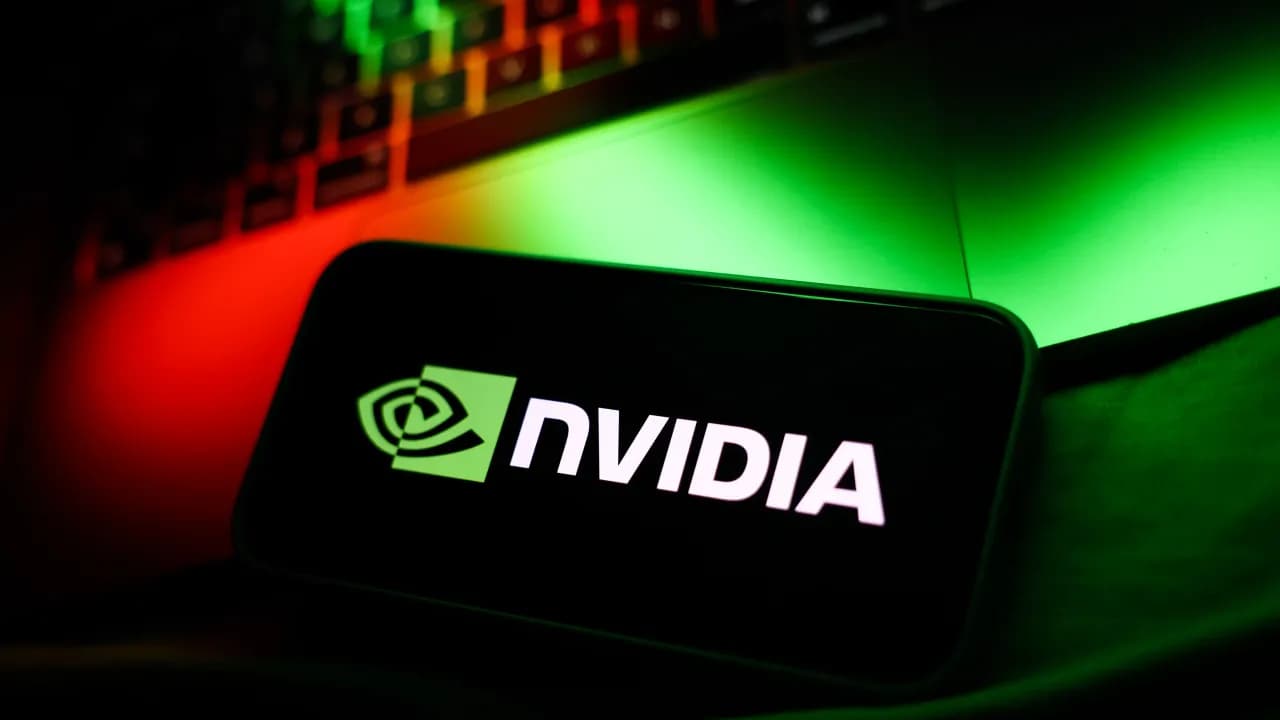Business
Nvidia Stock Rises 1% on Chip Export License to UAE

Nvidia Corporation’s stock rose by approximately 1% in premarket trading on Thursday, following news of a significant chip supply agreement with the United Arab Emirates (UAE). The U.S. Commerce Department’s Bureau of Industry and Security (BIS) has reportedly granted initial licenses allowing Nvidia to export chips to the UAE, a move that could enhance the company’s market position and revenue.
The licensing approval is part of a bilateral agreement focused on artificial intelligence (AI) and was established in May 2023. Under the terms of this agreement, the UAE is required to invest in the U.S. at a ratio of 1:1 for every dollar spent on Nvidia’s chips. This means that for every $1 billion worth of chips purchased, the UAE must invest an equivalent amount back into the U.S. economy. The UAE’s commitment to these investments paved the way for the recent greenlight on chip shipments.
In Thursday’s early trading, Nvidia’s stock followed a 2.20% increase from the previous session. The rise may also be influenced by solid third-quarter revenue reported by its supplier, TSMC. Despite this upward momentum, retail sentiment on the Stocktwits platform remains ‘bearish’, with the stock ranking as the top-trending equity ticker, indicating mixed investor confidence.
A report by Bloomberg, citing anonymous sources, revealed that the approval for chip exports to the UAE was contingent upon concrete investment plans from the UAE. Shipments of Nvidia chips worth billions had been delayed due to security concerns, particularly regarding China’s relationship with the UAE. The completion of the investment agreement was crucial to moving forward with these shipments.
The bilateral AI agreement, which includes a commitment from the UAE to invest $1.4 billion in the U.S. over the next decade, focuses on establishing a five-gigawatt (GW) data center in Abu Dhabi. The U.S. is set to approve shipments of up to 500,000 advanced AI chips annually, a substantial quantity intended to boost both nations’ technological capabilities.
While specific details regarding the approved chip shipments and the UAE’s investment commitment remain undisclosed, a spokesperson for the Commerce Department emphasized the U.S.’s dedication to fostering a transformational AI partnership with the UAE. Notably, the initial permits issued do not currently cover shipments to Abu Dhabi’s AI-focused company, G42, which had been anticipated to purchase a portion of these chips.
Market analysts have reacted positively to the news, with one observer calling it “huge” for Nvidia’s stock. Another investor expressed hope for a notable price increase, suggesting a potential single-day move exceeding $10 following this development.
Nvidia’s stock performance this year has been remarkable, with an increase of 41%, significantly outperforming the tech-focused Invesco QQQ Trust (QQQ) exchange-traded fund, which has gained a more modest 19%. This growth underscores Nvidia’s strong position within the semiconductor market, particularly as demand for AI technology continues to surge.
As the situation develops, investors will be closely monitoring Nvidia’s stock trajectory, especially in light of the promising partnership with the UAE and the broader implications for the tech industry.
-

 World5 months ago
World5 months agoSBI Announces QIP Floor Price at ₹811.05 Per Share
-

 Lifestyle5 months ago
Lifestyle5 months agoCept Unveils ₹3.1 Crore Urban Mobility Plan for Sustainable Growth
-

 Science4 months ago
Science4 months agoNew Blood Group Discovered in South Indian Woman at Rotary Centre
-

 World5 months ago
World5 months agoTorrential Rains Cause Flash Flooding in New York and New Jersey
-

 Top Stories5 months ago
Top Stories5 months agoKonkani Cultural Organisation to Host Pearl Jubilee in Abu Dhabi
-

 Sports4 months ago
Sports4 months agoBroad Advocates for Bowling Change Ahead of Final Test Against India
-

 Science5 months ago
Science5 months agoNothing Headphone 1 Review: A Bold Contender in Audio Design
-

 Top Stories5 months ago
Top Stories5 months agoAir India Crash Investigation Highlights Boeing Fuel Switch Concerns
-

 Business5 months ago
Business5 months agoIndian Stock Market Rebounds: Sensex and Nifty Rise After Four-Day Decline
-

 Sports4 months ago
Sports4 months agoCristian Totti Retires at 19: Pressure of Fame Takes Toll
-

 Politics5 months ago
Politics5 months agoAbandoned Doberman Finds New Home After Journey to Prague
-

 Top Stories5 months ago
Top Stories5 months agoPatna Bank Manager Abhishek Varun Found Dead in Well









